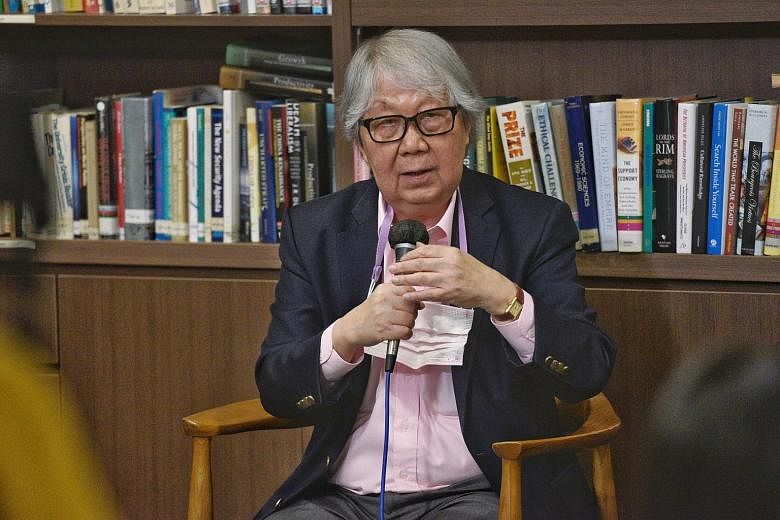SINGAPORE - The National University of Singapore (NUS) has said that it delayed filing a police report against former Tembusu College fellow Jeremy Fernando to take into account the welfare of the students involved.
Dr Fernando was sacked on Oct 7 following allegations of sexual misconduct made against him by two students. NUS said on Wednesday (Oct 21) that it had made a police report "given the seriousness of the allegations". Both students had alleged that Dr Fernando made non-consensual advances towards them.
In a media briefing on Friday (Oct 23), college rector Tommy Koh conceded that there was "a considerable gap" between the date the university fired Dr Fernando and when it made a police report.
"The university will delay reporting to the police if they feel that by reporting to the police you may cause the victim to self-harm... or by reporting to the police you will seriously harm the mental health of the complainant or make the recovery difficult, if not impossible," said Prof Koh.
"But at the end of the day, the university cannot not report," he added, citing NUS' legal obligation to report suspected crimes to the police.
NUS had said earlier that its staff spoke to both students about making a police report on multiple occasions between Aug 31 and Oct 7.
However, both students decided against doing so.
On Thursday, women's rights group Association of Women for Action and Research (Aware) questioned NUS' decision to file a police report when the alleged victims had decided not to.
Prior to these allegations, master of Tembusu College Kelvin Pang said there were no "red flags" regarding Dr Fernando, who taught cross-disciplinary modules, primarily focusing on philosophy and literature. He said the college conducts reference checks and evaluations when hiring new fellows.
ST reported earlier that in a paper which was part of a 2017 book he wrote, Dr Fernando wrote that "insemination" can be a part of teaching and could open up students and teachers to possibilities.
Pulling out a bookmarked copy of the book, Professor Koh said he had not read the book before. "If I had read this entry before when it came out in 2017, I would have counselled Dr Fernando," he said.
Asked if more will be done to educate students and staff on consent following this incident, NUS dean of students Leong Ching noted that the university has an existing module called Respect and Consent. It was earlier reported that Dr Fernando had played a role in crafting a consent workshop.
Responding to this, Associate Professor Leong said: "Many of us had inputs to (the module and it is) larger than one person... It continually needs to speak to new contexts and new needs."
Prof Koh said that in this #MeToo era, students are aware of their rights, and are much more willing to voice out if their rights are violated.
The #MeToo movement took off in 2017 when allegations against Hollywood mogul Harvey Weinstein resulted in many women sharing experiences of sexual assault or harassment.
Even then, "it is impossible for us to prevent a future Dr Fernando... None of us knew he was a sexual predator", he said.


